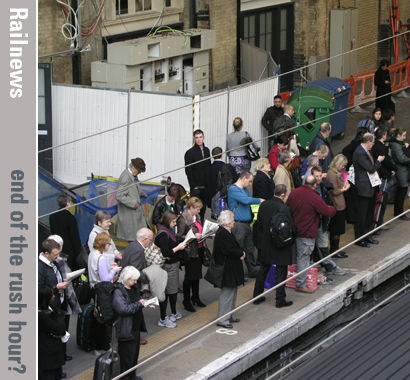THE traditional morning and evening peaks on the railways might never be restored in full, it is being claimed.
Transport secretary Grant Shapps has predicted that ‘the world will probably not go back to how it was before in a whole manner of different ways’. He told the BBC that business would start to ask: ‘Actually why does everyone have to get up and travel during the rush hour at a particular time in the morning? Why don’t we have more distance through the day?’
Mr Shapps said staggered working hours were also to be expected, which would mean more people travelling in what is now described as the ‘off peak’ period.
Network Rail chairman Sir Peter Hendy is reported to be suggesting that the numbers of commuters allowed on ‘rush hour’ services could in any case be capped, because social distancing may remain necessary for a long time to come. He is also said to be predicting compulsory reservations on intercity trains, so that every passenger has a seat. Easyjet chief executive Johan Lundgren has already revealed that even when flights restart his airline could keep the centre seats in rows of three vacant, in a bid to maintain social distancing.
The predictions from Mr Shapps and Sir Peter have followed a suggestion by chief scientific officer Sir Patrick Vallance that working from home is likely to be encouraged for some time, even after the full lockdown has been relaxed. He told a Downing Street press conference: ‘There may be a number of measures that need to continue … whilst vaccines and therapeutics come along.
‘There will be some changes I think that need to take place … around things like home working, that are going to be important to maintain that ability to break transmission.’
All travel was deliberately suppressed almost a month ago, and passenger numbers on National Rail have now fallen to about 5 per cent of their previous levels. Although rail services have been maintained for key workers and other essential travellers the number of passenger trains has been sharply reduced, although rail freight traffic has increased.


